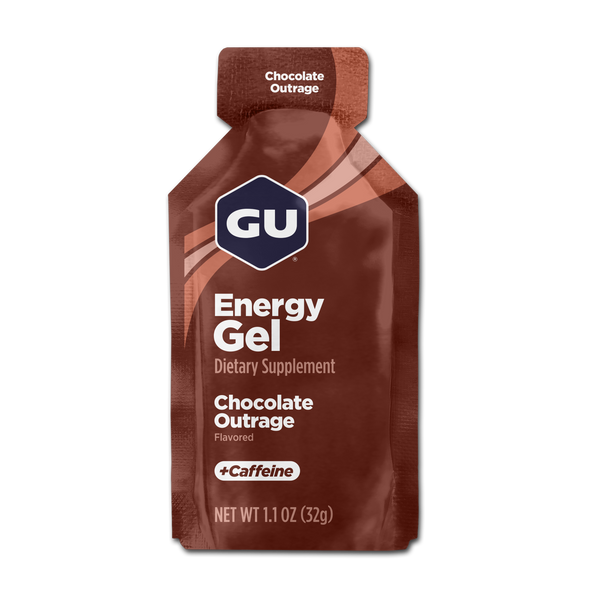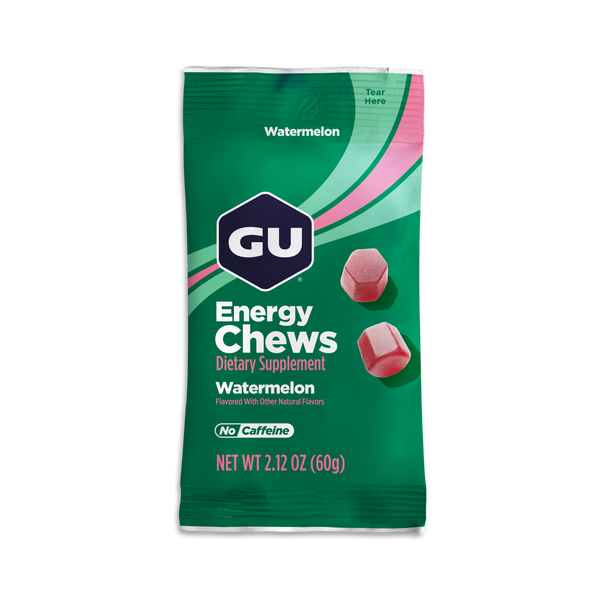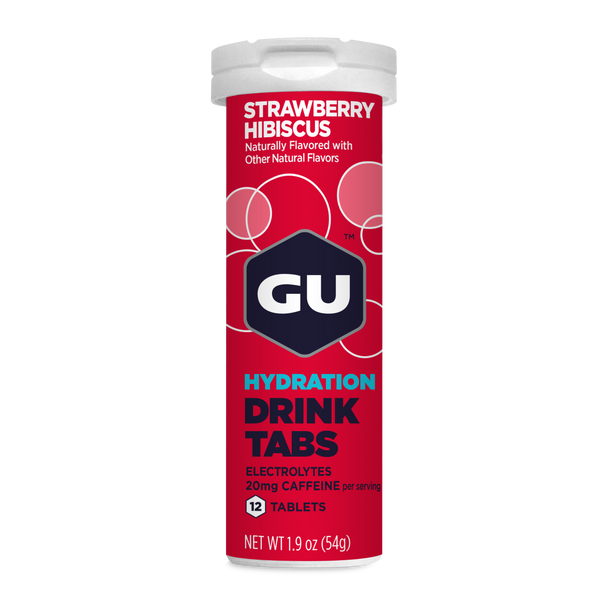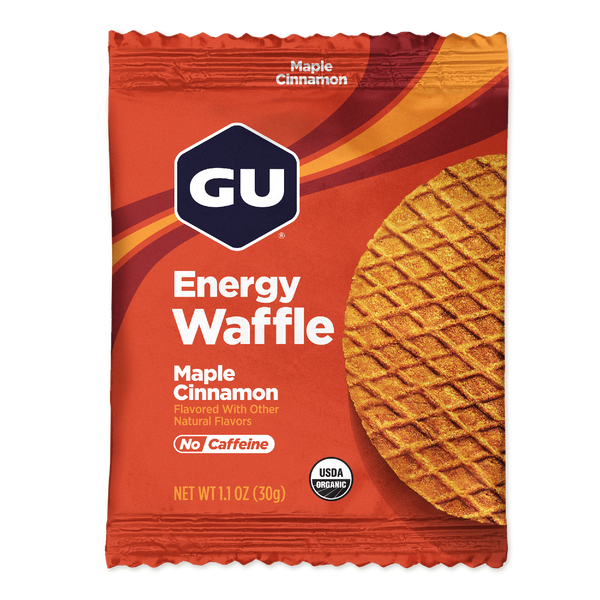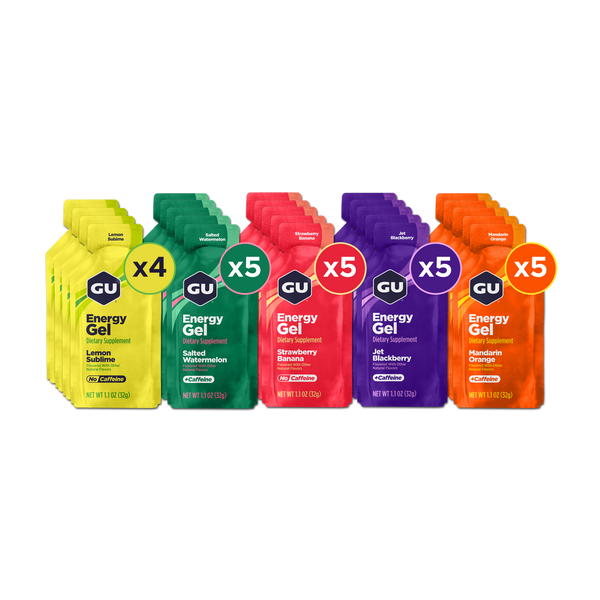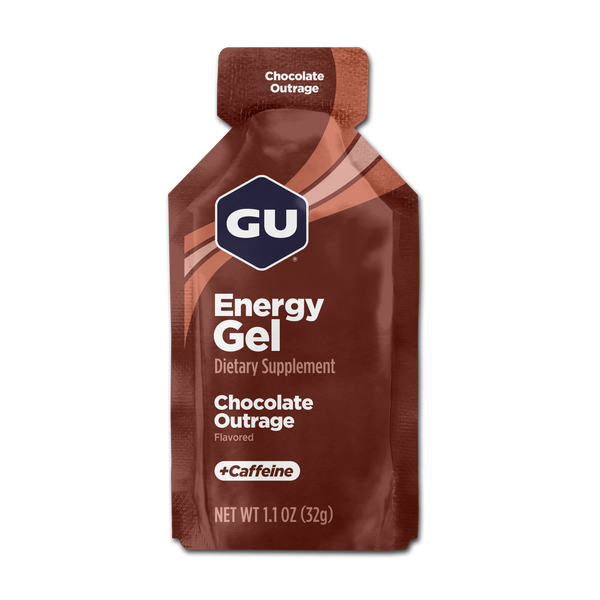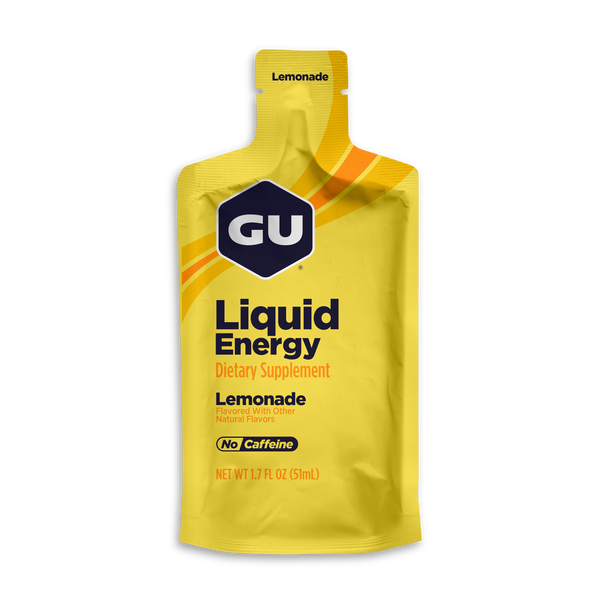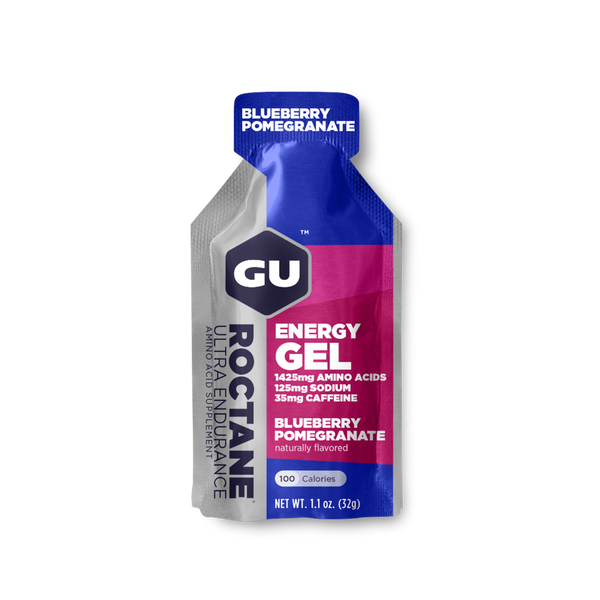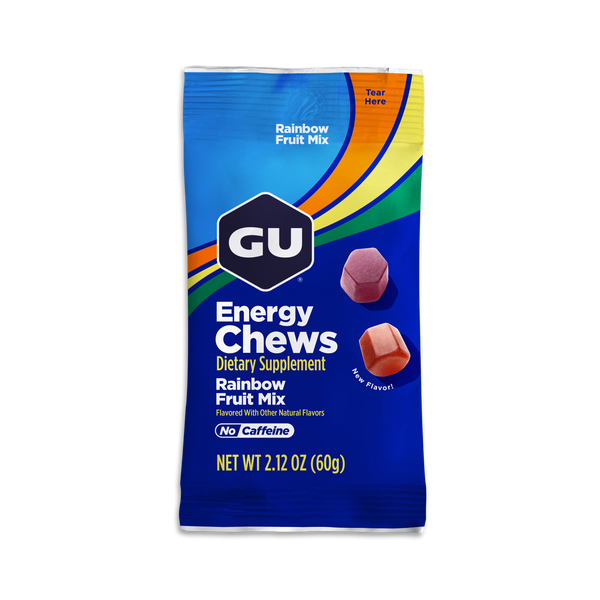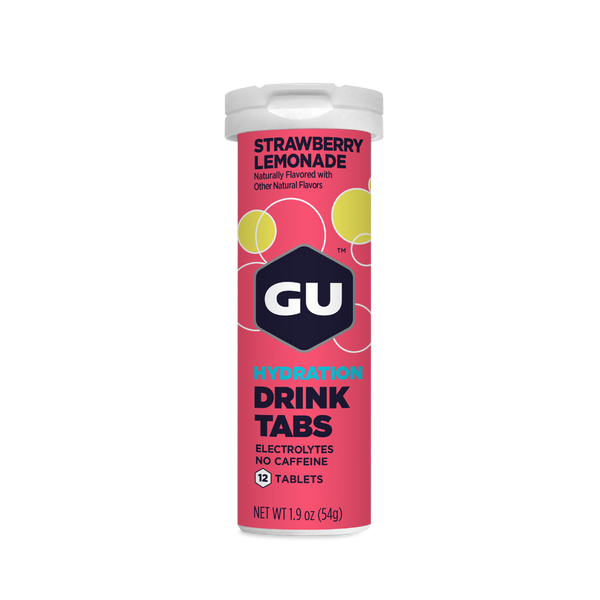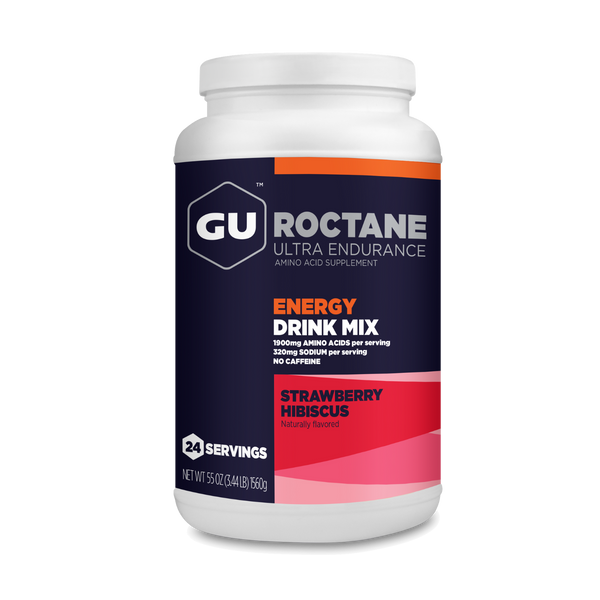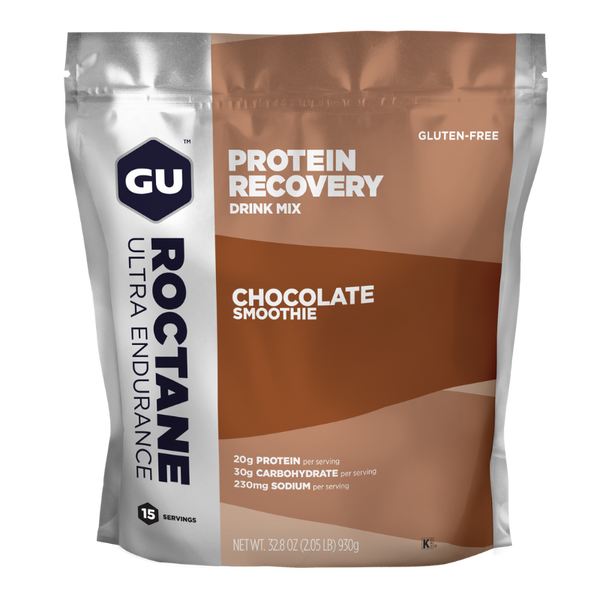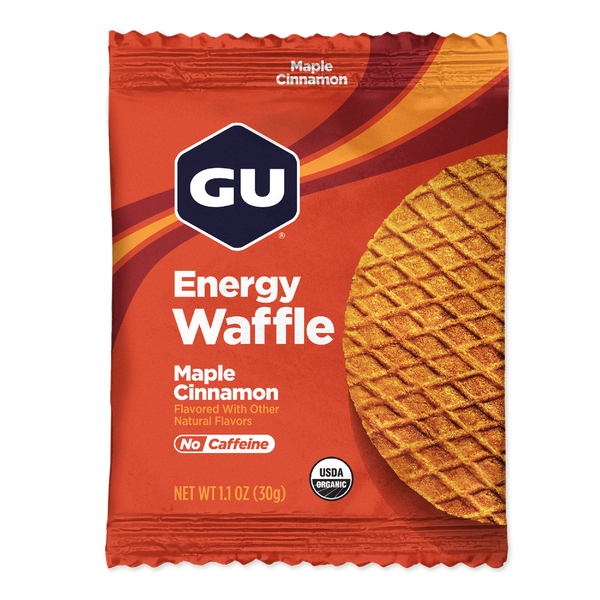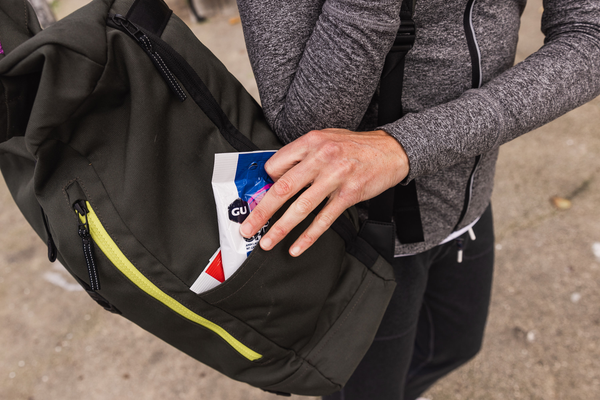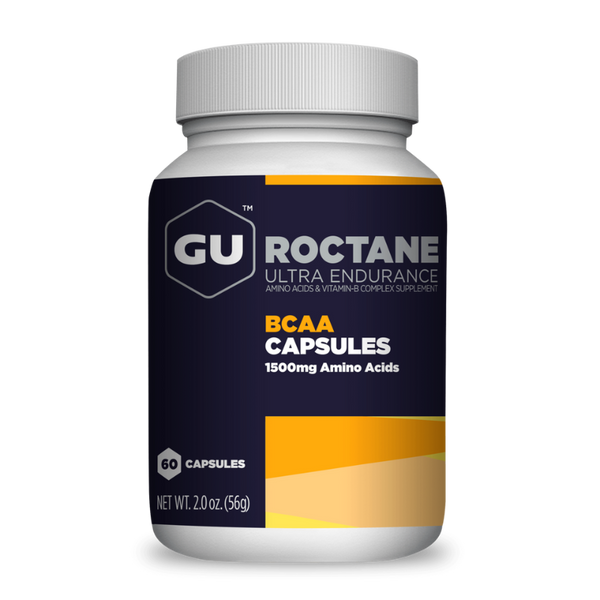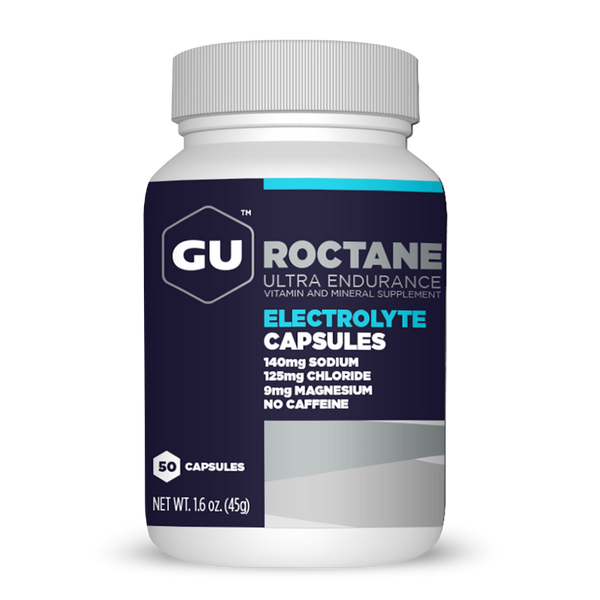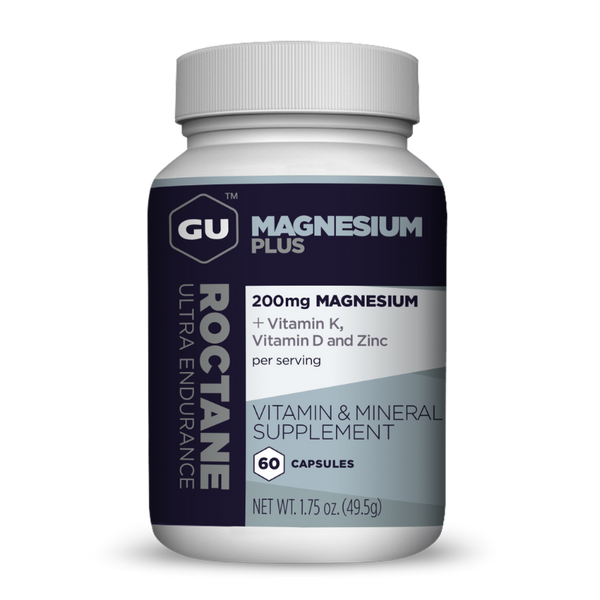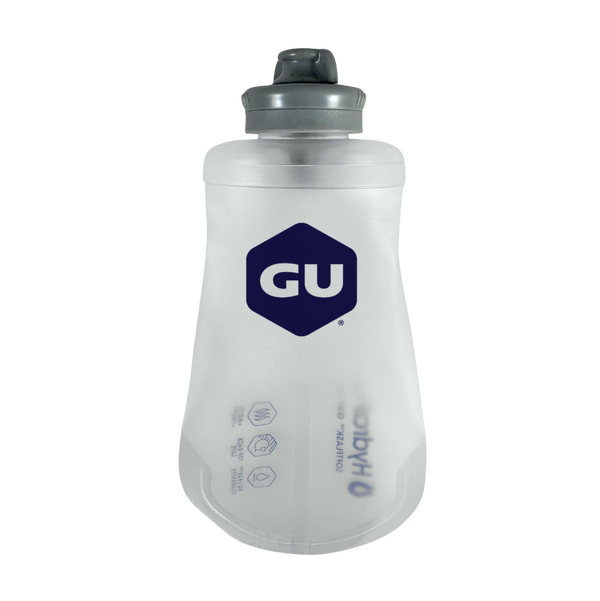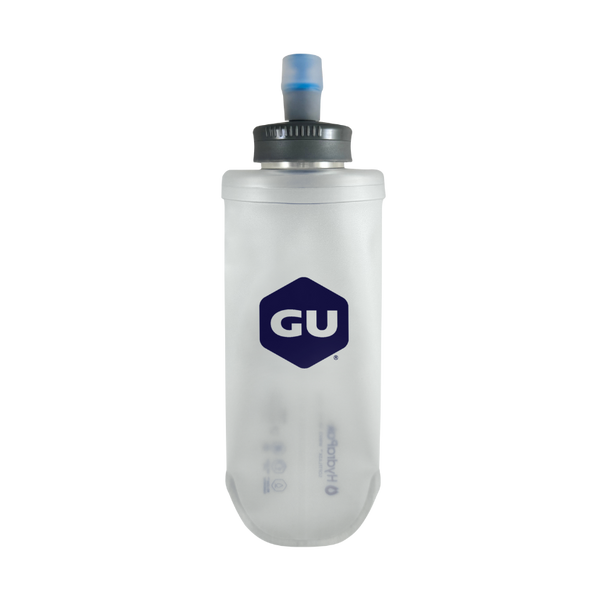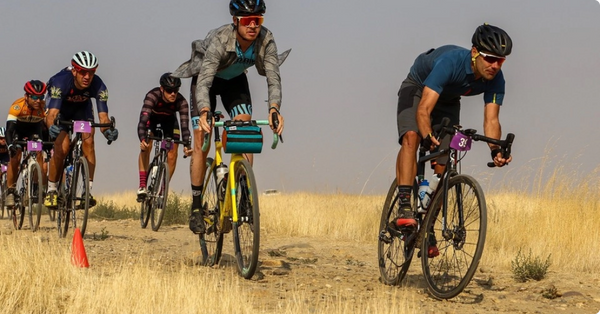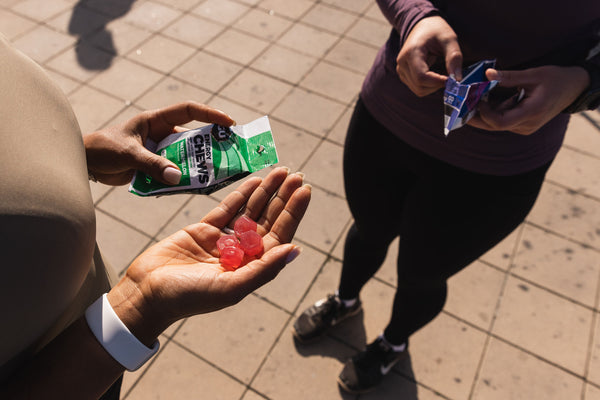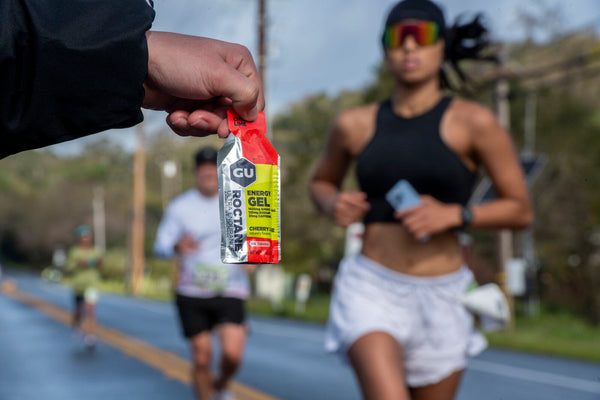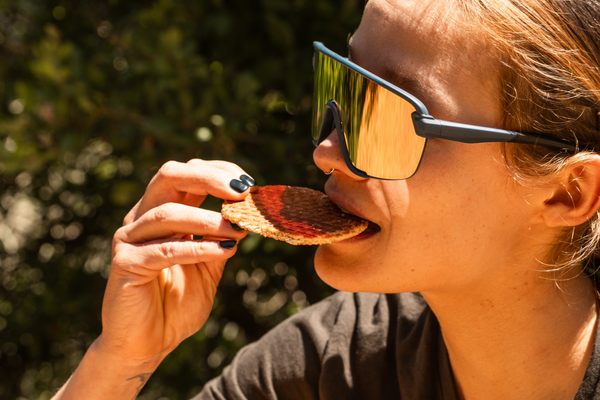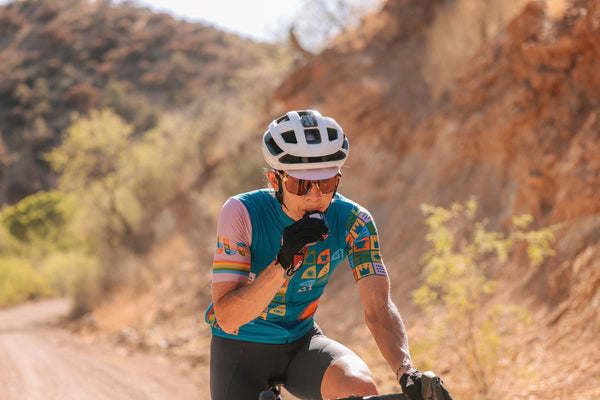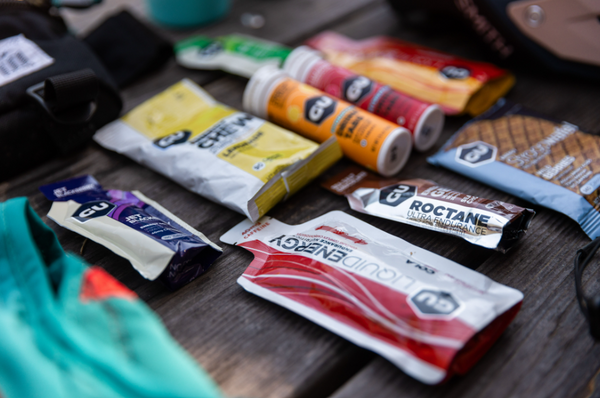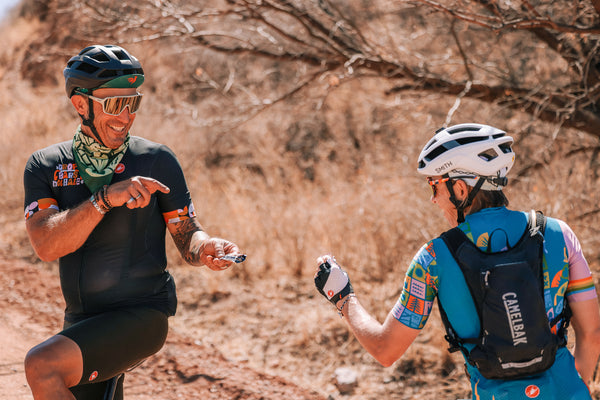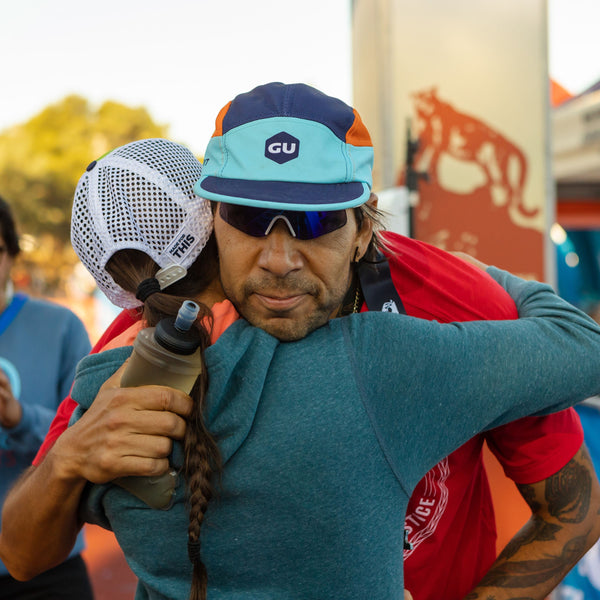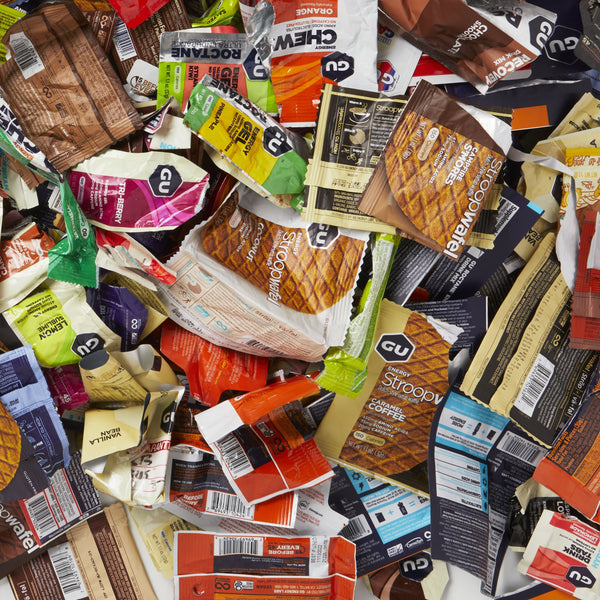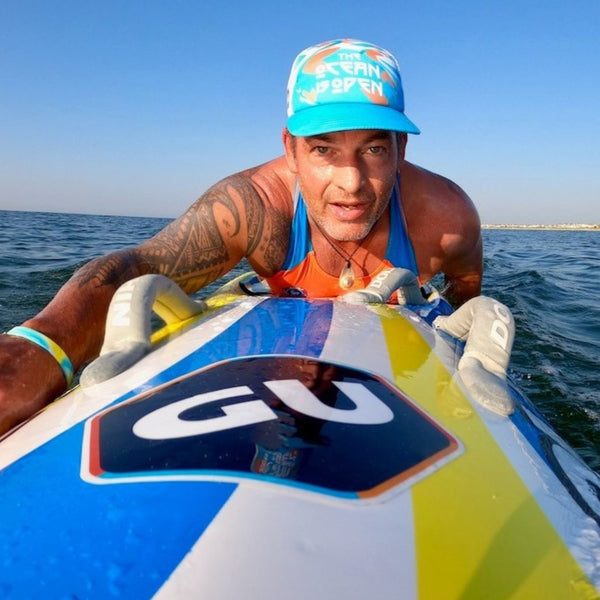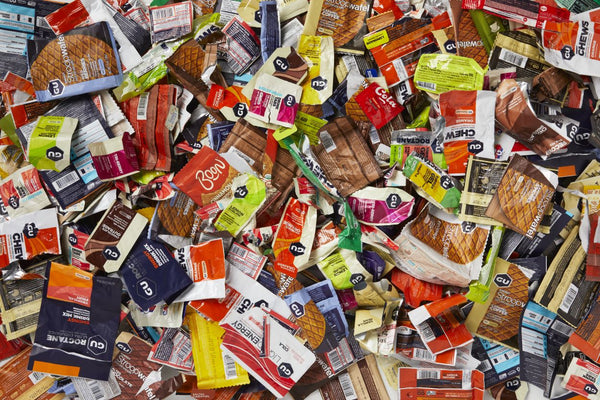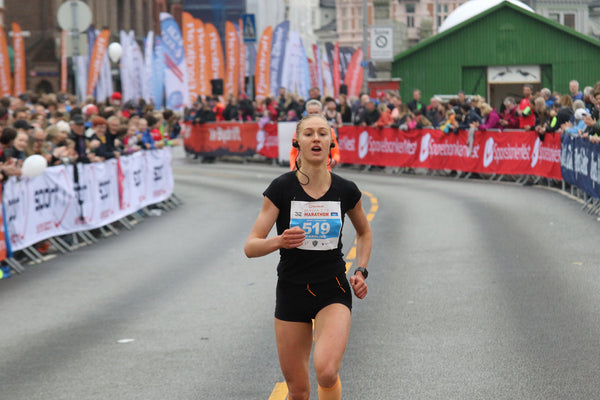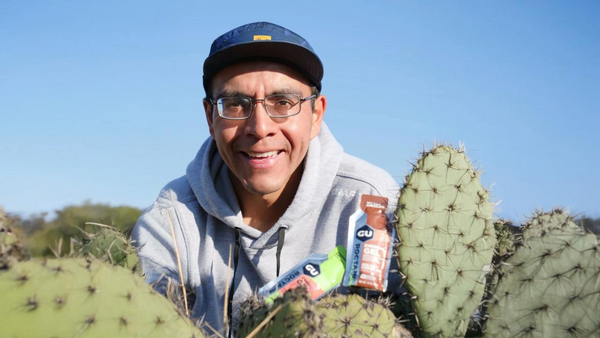Max King is a true jack-of-all-trades. He is an Olympic Trials qualifier in both the steeplechase and marathon, and he’s also a World 100km champion. This year, he’s focused his training and racing on big mountains… and getting up them fast.
In May, Max ran to a second-place finish at the competitive Maxi-Race 110km in Annecy, France. Two weeks later, he was back in the U.S. and dominated the field in the Broken Arrow Skyrace 26km. Soon after, we caught up with him to talk about what he’s learned about his body’s blood biomarkers and how he’s adjusted his diet from testing with InsideTracker.
Here at GU Energy Labs, we believe that Eating is Training. What you put into your body on a daily basis is just as important as the training you put it through. That’s why we’ve partnered with InsideTracker. They provide many of our sponsored athletes with in-depth blood-based analysis. InsideTracker analyzes biomarkers in your blood (vitamins, minerals, lipids, and hormones) to determine how your body is responding to your training and diet. From there, their team of nutrition scientists and exercise physiologists, through their online platform, deliver recommendations on diet, supplement, exercise, and lifestyle changes you can make to optimize your performance.
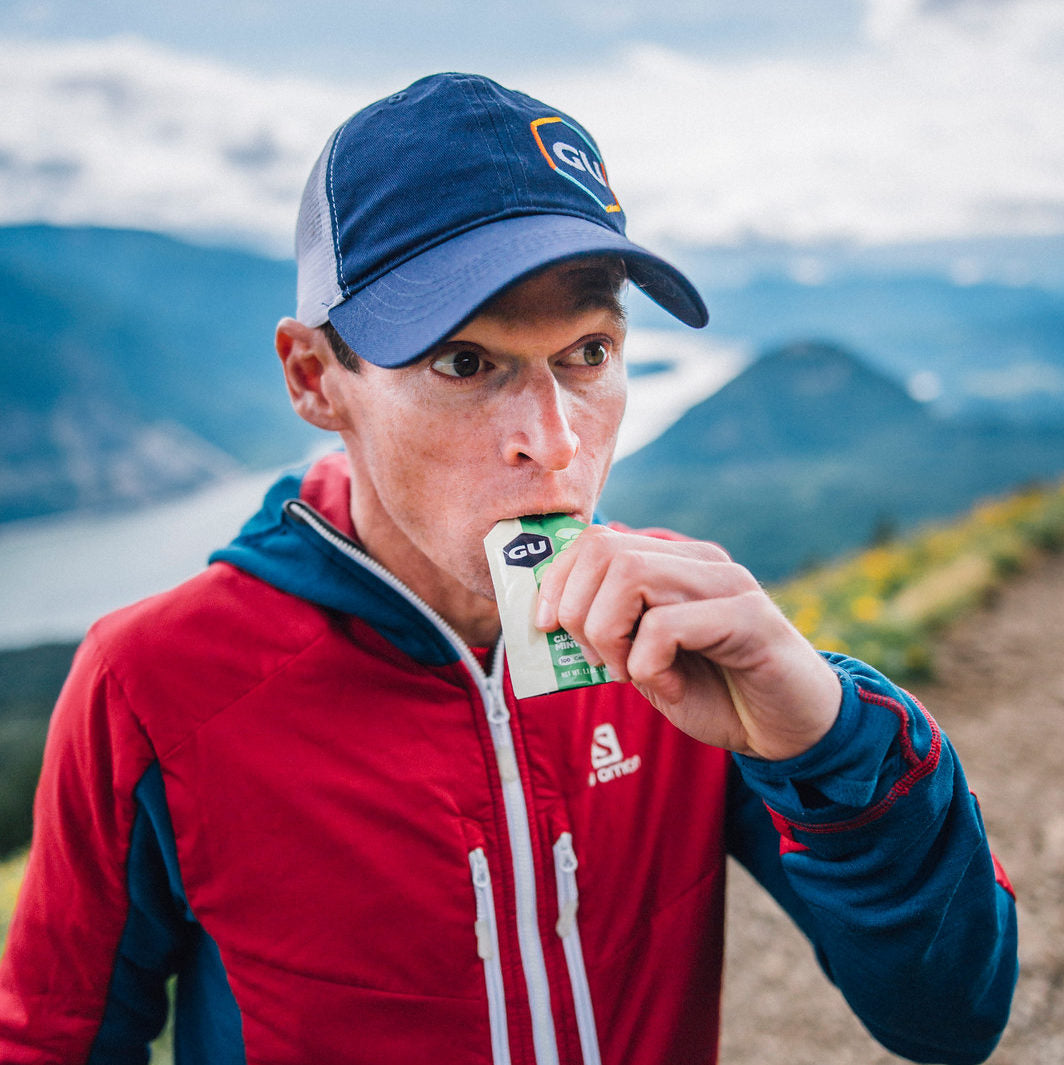
Here’s what Max had to say…
GU Energy Labs: So, we’re here talking after the Broken Arrow Skyrace in Squaw Valley, California. You just won the 26K distance. Congratulations! What was your nutrition plan today? Can you walk us through what you ate and drank from when you woke up this morning, through the race, and afterwards for recovery?
Max King: With a 26K like this, we’re talking about two to two and a half hours of running, so for me, my nutrition plan doesn’t need to be extensive. It needs to be pretty simple, because I’ll be out there really charging hard. I just need to get in some calories and make sure I’m maintaining my glycogen at a level that won’t upset my stomach. On race mornings, I’ve started to drink coffee because it helps me wake up a little bit more. I also eat a simple food bar that helps to satiate me. I really don’t need a lot of calories in the morning.
For the race, I started off with Roctane Drink Mix in my bottle for the first hour and a half. Then, I took down one Energy Gel. That was enough to get me through the race.
For longer races, I’ll plan out my nutrition a lot more. For races longer than three hours, I eat an Energy Gel every 20 minutes from just about the very beginning of the race.
GU: Why the three-hour mark? What is about that time frame that makes a difference from say, a two-hour race?
MK: It’s at that three-hour mark where you don’t want to be into any kind of glycogen debt. This means you have to start eating right away. On those longer races, you have to start thinking about nutrition basically from the gun. I’ll usually start eating at 30 to 45 minutes into the race, because you do have some calories in your gut from breakfast. But after 30-45 minutes, that’s the point where I start eating an Energy Gel every 20 minutes. If it’s a really long race, I will also supplement with some solid foods.
GU: You’ve been working with InsideTracker to look at your biomarkers through blood testing and analysis. Can you tell us more about what InsideTracker is and what information you’re getting from their tests?
MK: In short, the tests look at biomarkers specific to your overall athletic performance – both race day and training. They’ve laid out an entire list of these biomarkers that relate to performance. They then provide an optimal level for each biomarker, specific to the user, and the tests help determine whether you are low, high, or just right, “optimized.” From the results, InsideTracker can suggest things that you can change in your diet and lifestyle to help improve your levels.
GU: So, you’ve been using the tests from InsideTracker to determine your biomarkers before and after key training blocks and races. What have you been learning about your biomarkers and how do you think your training and racing has been affecting their levels?
MK: It’s been really interesting to get that data.
“In the past, I’ve been training blind. You can test your performance from day to day, week to week, or month to month, but you never know what’s actually going on inside your body. Testing with InsideTracker has told me what’s going on with my blood and what’s going on inside my body.” -Max King
It’s like looking at your performance from the inside out, instead of just getting that feedback from how you feel. It’s been really interesting to just get those biomarker levels and data. It’s helped me analyze my performance to find out what’s going on with my body inside of a training block, and what happens to my body after a hard race.
Also, changing things with your diet can affect things in the long-term, and that’s something I’ve found fascinating. One of the key things that I learned was after a recent 70-mile race, my inflammation was off the charts. This is obviously what you’d expect – your body feels like crap, you’re hurting. But, what you don’t really know is where those levels actually are, and how long recovery takes, until they return to ‘normal.’
Learning this helps you determine how long your recovery period should be, and InsideTracker helps you decide what to eat in order to shorten your recovery time and get those inflammation biomarkers back into the ‘optimal’ zone.
GU: It sounds like it’s all about visibility and discovering the reasons behind how you’re feeling, be it good or bad, during training. What specific recommendations have you implemented based on what you’ve learned about your biomarkers?
MK: I’ve never been anemic, but I don’t test my ferritin very often. (Note: Ferritin is the body’s iron storage form.) All I know is that I don’t feel super fatigued, and I’m not anemic. But my tests showed that my ferritin levels are actually a little low. However, my [serum] iron was really high, and it was interesting to see those two dynamics. As a result, they recommended that I actually try to get that ferritin up with an iron supplement even though my iron was fairly high. I’ve learned that ferritin is a true indicator and more stable indication of iron status, while serum iron is much more variable, so ferritin is the iron marker to focus on. Since learning this, I’ve specifically been trying to increasing that ferritin level.
GU: Have there been any changes in your day-to-day diet, in terms of the foods you’re eating and the types of nutrients you’re trying to get from your diet?
MK: Nothing that I’ve specifically changed other than trying to increase the ferritin. One of the things that was interesting was getting positive feedback on my diet. Am I eating healthy? Am I eating a well-rounded diet? What I found was that I actually have a pretty good diet. I was already eating a lot of the foods that were recommended, and a lot of my biomarkers were actually in line with what they recommended as optimal levels. It was great confirmation that what I’m doing in training is working and what I’m doing on a day-to-day basis inside my diet and my lifestyle is on the right track.
GU: How would you classify diet? Do you follow any nutrition trends like cutting out gluten or are you a well-balanced eater?
MK: I’m a well-balanced eater. I guess I would describe it as being a healthy eater, but I do eat anything. I eat a lot of different things, and I like the variety of foods that are out there.
“If I had to restrict myself, I wouldn’t enjoy it, and I wouldn’t enjoy the training piece as much. I think that’s what a lot of people don’t really understand. If you’re really restricting your diet, you’re obviously cutting out a lot of the different nutrients you get from different foods. So, being able to eat a lot of different things has been good for me.” -Max King
I understand a lot of people have to have food restrictions because of allergies or because it works for their body. Everybody’s a little bit different. I happen to tolerate a lot of different types of food, and I love it.
I also love donuts.
GU: You gotta reward yourself!
MK: That’s right.
GU: Have you learned anything from InsideTracker that has helped you change or modify what you eat during an actual race, in competition, or training?
MK: After this last race, I found out that my inflammation was really high, but I’ve been experimenting for years with my race-day nutrition, and I have a good understanding of what works and what doesn’t. I feel like I have my race nutrition dialed in based on experimentation through the actual race experience. It’s going to take a little bit more testing, more advice, and diving in a little bit deeper to actually figure out if there’s anything that I need to change for my race-day nutrition.
GU: What else have you learned from InsideTracker about your biomarker levels?
MK: I discovered that I have high testosterone levels. InsideTracker explained that this is like your gas tank. Over a training block, your testosterone starts to decrease. At the point where your testosterone is too low for you to really recover well, that signals the end of your training block. My testosterone starts really high and it decreases very, very slowly, which means I have really good recovery.
GU: So since you have a higher than normal testosterone level, you can do more damage without increasing the time you need to recover?
MK: Yes! For example, the most recent race I did should have really tanked my testosterone levels, but I learned through my tests that it didn’t. My testosterone dropped, but it was not that significant.
This means that I can recover really well from this race, in particular, because my testosterone started high. I think what’s most interesting is just seeing that level as a key indicator of where you’re at in your training as well as how well you recover.
GU: Based on what you’ve learned about your testosterone, are you changing the way you think about a training block and key races? Are you squeezing more into a smaller period or are you less worried about scheduling multiple difficult efforts in a shorter period?
MK: Knowing my testosterone is high reinforces all those years that I have behind me. I’ve always pushed my body, and I’ve always trained pretty hard. While I always worried about over-training, I’ve never really been at that point. This knowledge reinforces the fact that it would be really difficult for me to over-train. I recover well, and I’ve always recovered really well. It has always been a strength of mine.
Now, if I want to train hard on back-to-back days, or train harder for an extended training block, I can do so with confidence that my testosterone isn’t going to plummet.
GU: Have you learned anything about your sleeping habits and their effect on your performance?
MK: Yes, my sleep-related biomarkers are all really good, and that makes sense because I sleep really well.
GU: So there you have it. Whether you’re a professional athlete or heading out for a first-time 5k, just as InsideTracker likes to say, knowledge is power and your blood doesn’t lie. Either way, one thing is for sure – you’ll learn a lot about yourself, your body, and how your athletic endeavors have an affect on it all.

